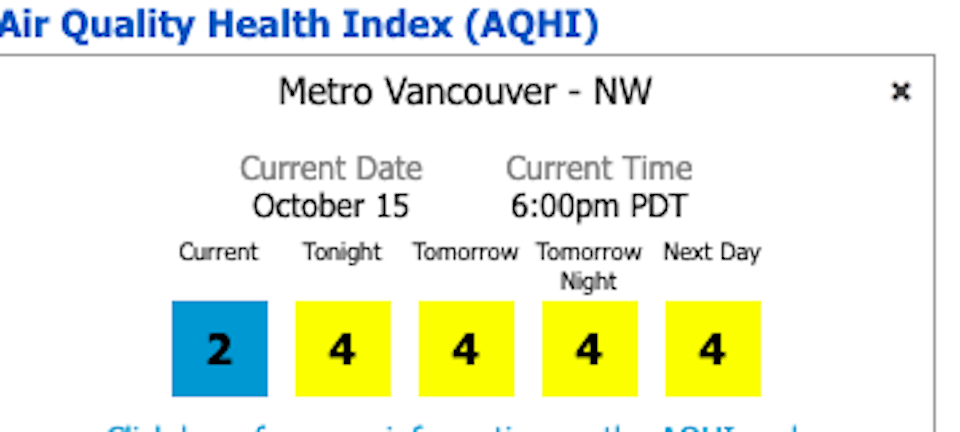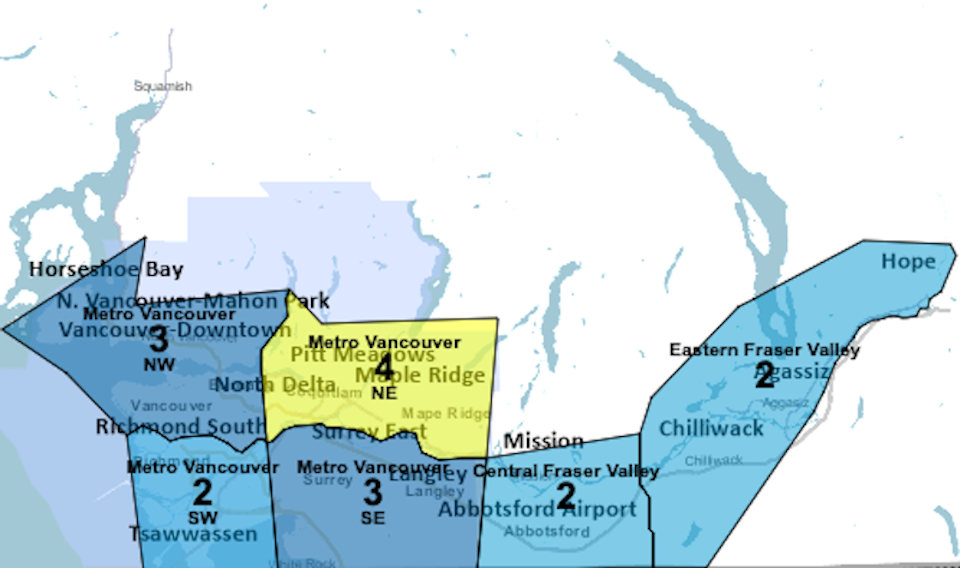Metro Â鶹´«Ã½Ó³»is continuing an air quality advisory for the Lower Mainland due to smoke from wildfires burning in B.C. and south of the border.
The advisory was issued on Friday (Oct. 14) because of high concentrations of fine particulate matter in the atmosphere caused by wildfires burning southeast of Chilliwack (near Chilliwack Lake), near Hope, near Harrison Lake, and in Washington.
As of Saturday afternoon, Metro Vancouver's shows that many areas of the Lower Mainland have a "low health risk." However, many of these areas are expected to have a "moderate health risk" by Saturday evening and on Sunday. Smoke concentrations may vary widely across the region as winds and temperatures change, and as wildfire behaviour changes.

Metro Â鶹´«Ã½Ó³»weather forecast includes an air quality advisory
With the forecast calling for a week of sunshine, the poor air quality isn't expected to improve for several days until there is a significant change in the weather.
Fine particulate matter, also known as PM2.5, refers to airborne solid or liquid droplets with a diameter of 2.5 micrometres or less. PM2.5 can easily penetrate indoors because of its small size. You should refrain from outdoor activity during the air quality advisory, particularly if breathing feels uncomfortable.
"Exposure to PM2.5 is particularly a concern for people with underlying conditions such as lung disease, heart disease, chronic obstructive pulmonary disease (COPD), asthma and/or diabetes; individuals with respiratory infections; pregnant women and infants; children; older adults; and outdoor workers (e.g. construction and agricultural workers). Individuals who are socially marginalized may also be at elevated risk (e.g. people who are experiencing homelessness or are underhoused)," according to Metro Vancouver.
If you are impacted by the smoke: keep windows closed, run a portable HEPA air cleaner, or visit a public building with air filtration.
If you are experiencing symptoms such as chest discomfort, shortness of breath, coughing or wheezing, seek prompt medical attention. Call 911 in case of an emergency.



